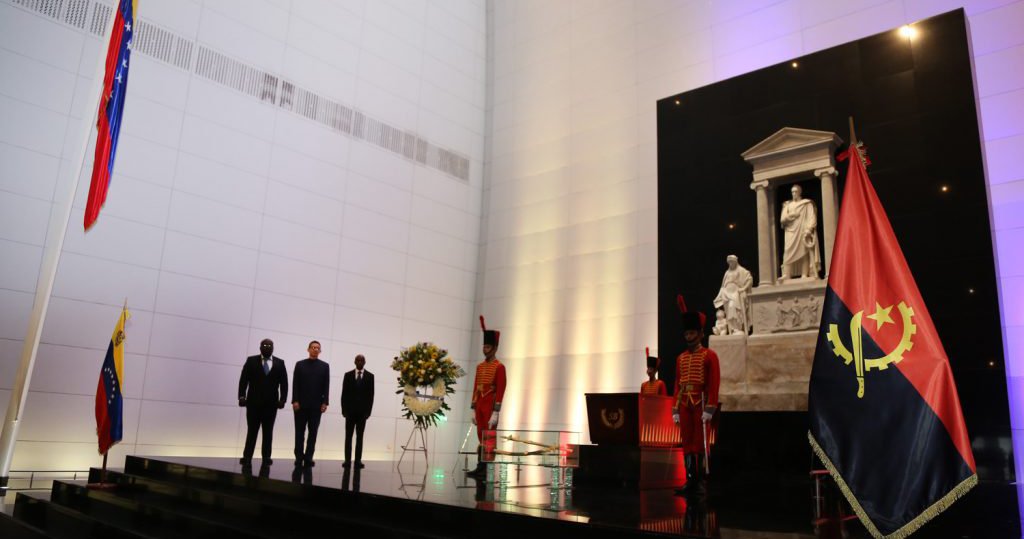
Zenu was already found not guilty of embezzlement by a UK High Court in August 2018. In its judgement, the British court also questioned whether $3 billion had been taken from the sovereign wealth fund at all, as no money had actually been removed.
As such, the case against Zenu, far from inspiring confidence among ordinary Angolans and foreign investors and is already being slammed as a show trial.
On 31 December 2019, Angolan authorities announced they were freezing the assets of the former president’s daughter, Isabel dos Santos, a private-sector entrepreneur and a brief head of Sonangol, under the anti-corruption campaign.
The timing of the announcement, when international news coverage was slow, raises suspicions that the announcement was made to garner the maximum possible news coverage, rather than to follow the due process. The details of which exact assets will be frozen are fuzzy, and Isabel dos Santos was unable to present her side of the story to Angolan authorities. Taken together with the timing of the decision, her case resembles Zenu’s as an act of showmanship rather than genuine desire to tackle corruption.
Local sources indicate that Ms dos Santos is being targeted so as to give up her share in important companies in the banking and telecoms sector in order to support foreign investors. In addition to wanting to be seen to be doing something by the public, Lourenço also wants to consolidate his power within the country’s ruling elite.
It is for this reason the corruption campaign has zeroed in on the former first family, while sparing other leading government figures. That is the case of former Vice President Manuel Vicente, who was previously accused of bribing Portuguese prosecutor Orlando Figueira with €760,000 ($850,000) to drop an inquiry into his luxury real estate dealings in Portugal. At the time of alleged bribery, Vicente was head of Sonangol, which he left in financial ruin after his tenure.
Last May, a Portuguese court ruled that former Angolan Vice President Manuel Vicente would be tried in Luanda, rather than Lisbon, on charges of corruption and money-laundering. The decision came after Lourenco’s loud protests about Angola’s sovereignty. But Vicente, who has since returned to Angola, enjoys judicial immunity as a former vice president. Far from being punished, he has returned with a vengeance to Angola’s ruling elite scene.
With a raft of upcoming privatisations ordered by the IMF in exchange for financial aid, Luanda’s political elite look to make a killing, with Vicente playing a key role through his complex web of offshore companies.
Regarding corruption crackdowns in Angola, US NGO Freedom House said: “Public officials are periodically prosecuted for corruption and other crimes. Often these instances are highly publicized and occur in conjunction with presidential announcements of a renewed assault on corruption, but such efforts are episodic rather than systematic.”
Freedom House wrote of Angola’s judiciary: “The judiciary is not independent in Angola. As one Angolan jurist put it, the judiciary is ―hostage to the executive.”
In 2017, Angolan courts threw out a case by the country’s opposition challenging the results of the 2017 election that Lourenço won; and then went one step further and said those who had brought the case had submitted forged documents to court. Since 2010, the president nominates all judges in the constitutional supreme, and audit courts.
“The judiciary is subject to political interference by the government, president, and other
politically powerful individuals affiliated with the ruling party,” Freedom house continued. “The government has rewarded compliant judges with paid posts as chairs of committees. Some close to the system argue that sentences are frequently paid off, especially in civil cases. Political loyalty plays an important role in the system, and comparable cases are not necessarily treated equally, nor do they yield predictable outcomes. Bribery and influence peddling are commonplace in the courts.”
Freedom House releases an annual Freedom in the World report. In 2019, it ranked Angola as ‘Not Free,’ with a score of 31 out of 100 (0 being less free and 100 being most free). Furthermore, The World Justice Project, a US-based NGO, also releases an annual Rule of Law Index. In 2019, Angola ranked 111 out of 126 globally, and 24 out of 30 in its region.